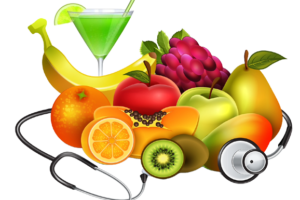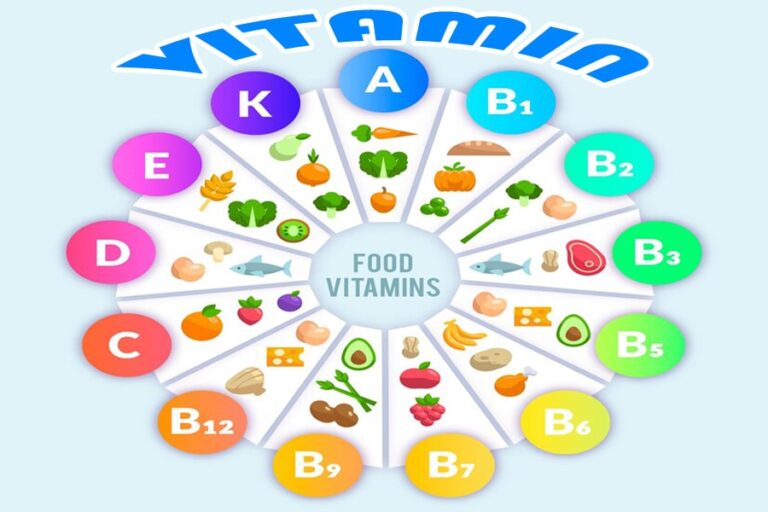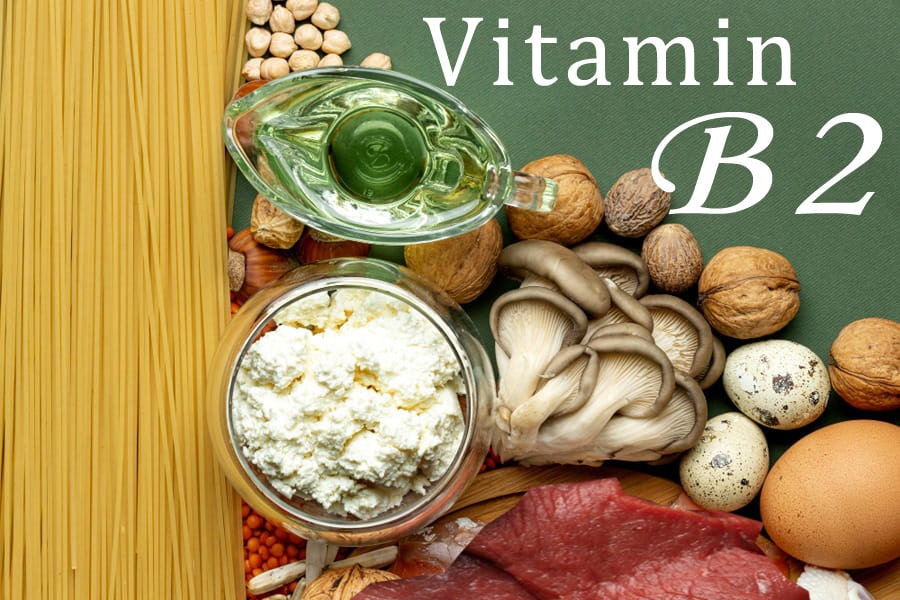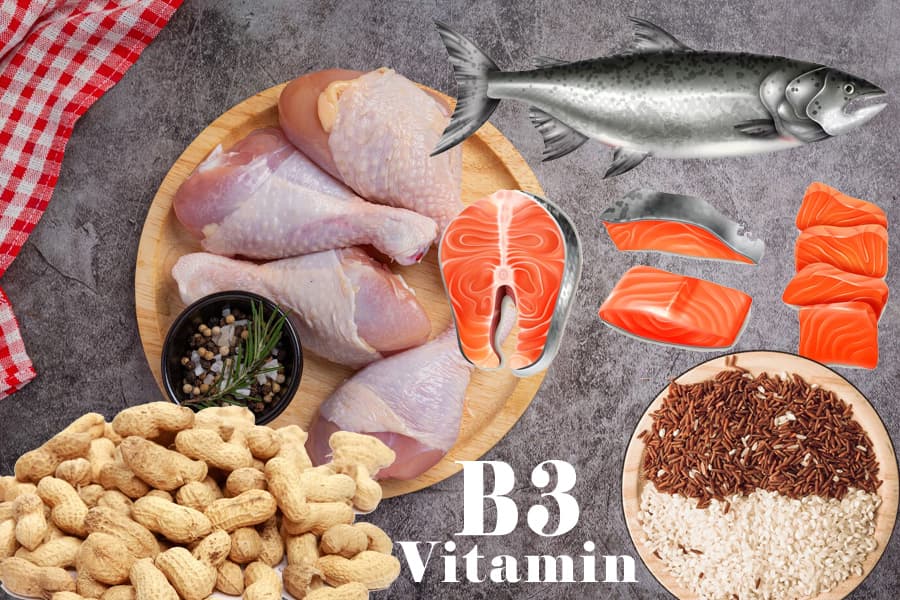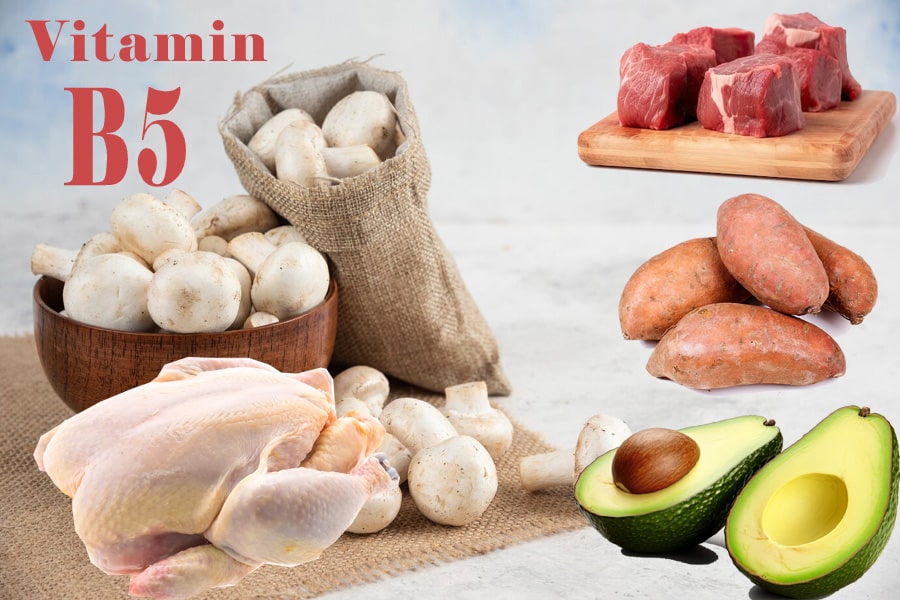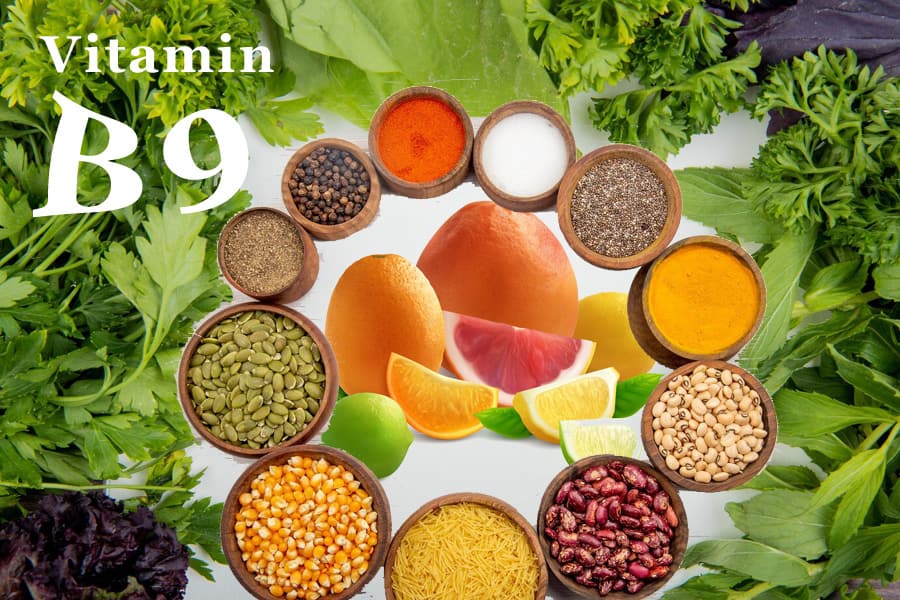Intro:
We should know about the essential vitamins for our body and where we can find them. They are very urgent elements that our body needs. Though these organic compounds are needed in small amounts, they are essential for good health. Our body can’t produce most of the vitamins. Hence, we have to obtain them through food.
In this article, we’ll explore 13 essential vitamins for our body, their significance, their deficiency syndromes, and where to find them.
Types of Vitamin:
There are two types of essential vitamins for our body. Fat-soluble and water-soluble.
- Fat-soluble vitamins are vitamins A,D, E, and K.
- Water-soluble vitamins are vitamin C, B1, B2, B3, B5, B6, B7, B9 and B12.
Essential Vitamins for our Body:
Let’s see the essential vitamins for our body and where we can find them. What is the importance of these vitamins, and what is the deficiency syndrome in a lack of these vitamins?
1/13. Vitamin A:
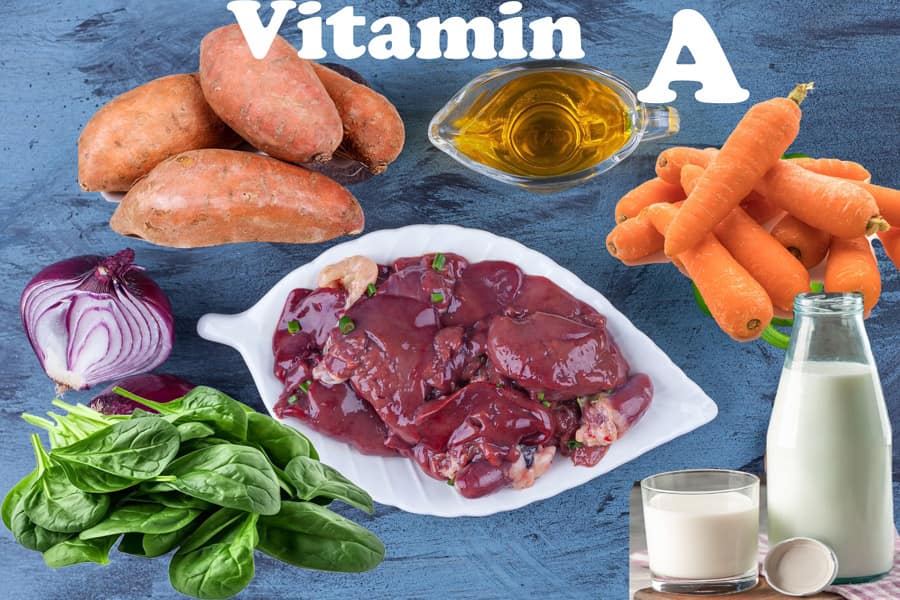
- Generic Name: Retinol.
- Importance: Crucial for eyesight, immunity, reproduction, and healthy skin.
- Deficiency syndromes: night blindness, dry eyes, increased susceptibility to infections, impaired growth.
- Sources: liver, sweet potatoes, carrots, spinach, onion, cantaloupe, and fortified milk.
2/13. Vitamin B1:
- Generic Name: Thiamine.
- Importance: It helps convert food into energy and supports nerve function.
- Deficiency syndromes: Beriberi, characterized by muscle weakness, fatigue, nerve damage, and cardiovascular problems.
- Sources: meat, fortified cereals, whole grains, green peas, and beans.
3/13. Vitamin B2:
- Generic Name: Riboflavin.
- Importance: energy production, healthy skin, and eyesight.
- Deficiency syndromes: ariboflavinosis, causing sore throats; redness and swelling of the lining of the throat and tongue; and inflammation of the corners of the mouth.
- Sources: Dairy, eggs, meat, fortified cereals, mushrooms.
4/13. Vitamin B3:
- Generic Name: Niacin.
- Importance: Supports energy metabolism, nervous system function, and cholesterol balance.
- Deficiency syndromes: Pellagra leads to symptoms such as dermatitis, diarrhea, and dementia.
- Sources: Chicken, tuna, brown rice, peanuts, fortified cereals.
5/13. Vitamin B5:
- Generic Name: Pantothenic Acid.
- Importance: Component of enzymes involved in energy production and hormone synthesis.
- Deficiency syndromes: Rare, but may result in fatigue, insomnia, vomiting, and stomach discomfort.
- Sources: Meat, poultry, mushrooms, avocados, sweet potatoes.
6/13. Vitamin B6:
- Generic Name: Pyridoxine.
- Importance: Protein metabolism, red blood cell formation, brain function.
- Deficiency syndromes: neurological symptoms like convulsions, dermatitis, anemia, and impaired immune function.
- Sources: Chicken, fish, chickpeas, fortified cereals, bananas.
7/13. Vitamin B7:
- Generic Name: Biotin.
- Importance: Supports fat and carbohydrate metabolism and healthy hair, skin, and nails.
- Deficiency syndromes: rare but may cause hair loss, skin rash, and neurological symptoms.
- Sources: Egg yolks, nuts, seeds, liver, sweet potatoes.
8/13. Vitamin B9:
- Generic Name: Folate/Folic Acid.
- Importance: Crucial for DNA synthesis and red blood cell production, especially during pregnancy.
- Deficiency syndromes include megaloblastic anemia, neural tube defects during pregnancy, and an increased risk of cardiovascular diseases.
- Sources: Leafy greens, legumes (beans, lentils), citrus fruits, fortified cereals.
9/13. Vitamin B12:
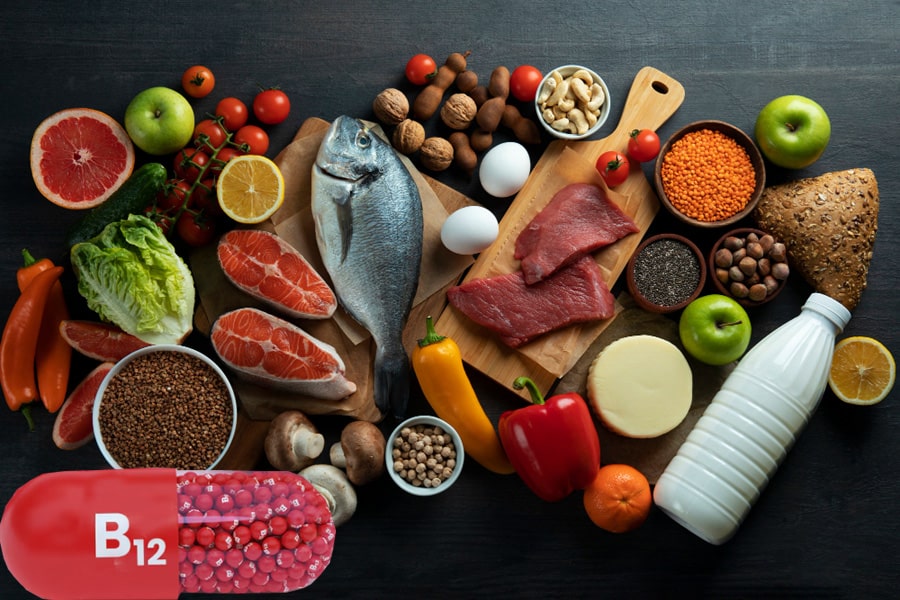
- Generic Name: Cobalamin.
- Importance: nerve function, red blood cell formation.
- Deficiency syndromes: pernicious anemia, fatigue, weakness, neurological issues, and potential long-term damage to the nervous system.
- Sources: Primarily animal products (meat, fish, poultry, dairy) or fortified plant-based options.
10/13. Vitamin C:
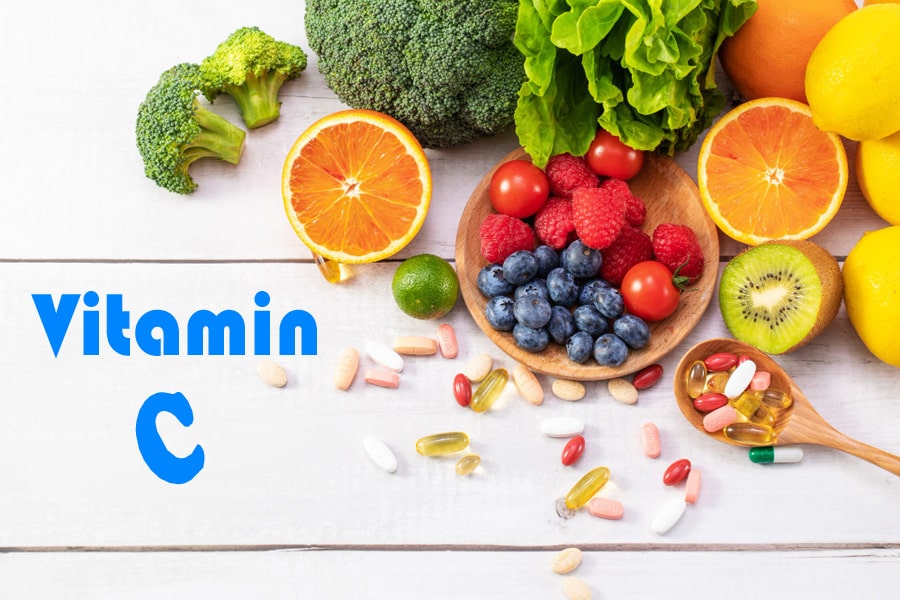
- Generic Name: Ascorbic Acid.
- Importance: antioxidants support immune function, wound healing, and iron absorption.
- Deficiency syndromes: scurvy, with symptoms like fatigue, joint pain, swollen gums, and easy bruising.
- Sources: Citrus fruits, bell peppers, broccoli, strawberries, kiwi, Brussels sprouts.
11/13. Vitamin D:
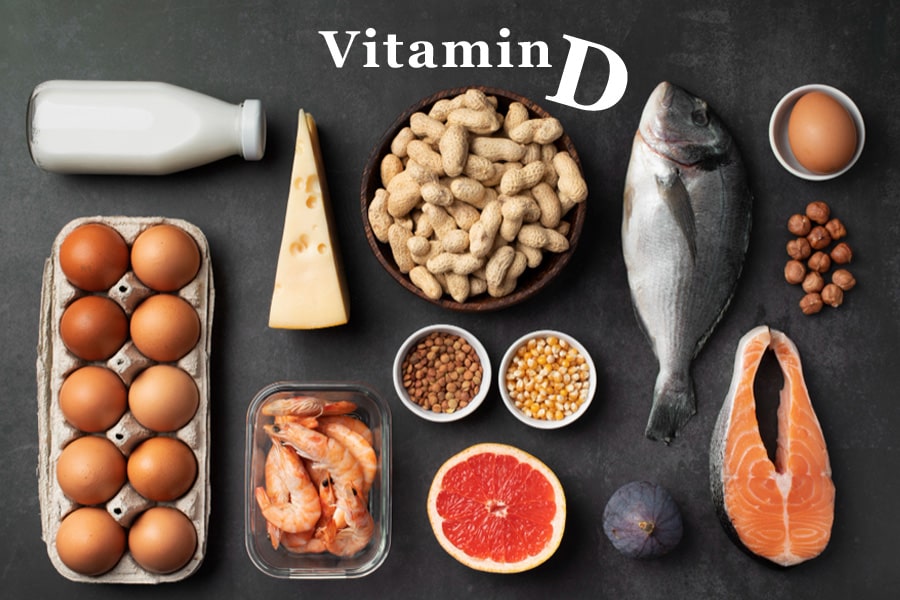
- Generic Name: Calciferol.
- Importance: It promotes calcium absorption for strong bones and may support immune function.
- Deficiency syndromes: Rickets in children (soft, weak bones) and osteomalacia in adults (bone pain and muscle weakness).
- Sources: Fatty fish (salmon, tuna), fortified dairy, mushrooms, sunlight exposure.
12/13. Vitamin E:
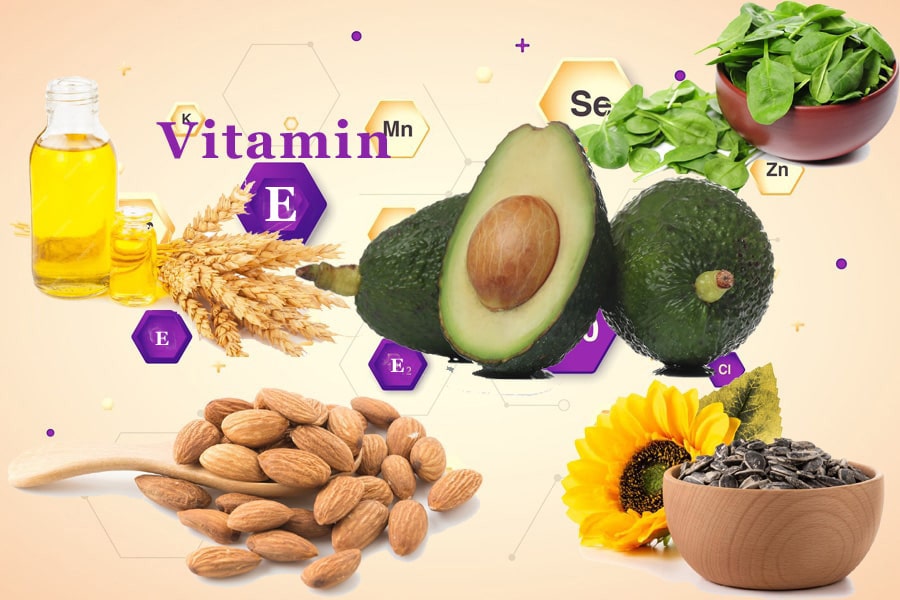
- Generic Name: Tocopherol.
- Importance: Antioxidant, protects cells from damage, supports immunity.
- Deficiency syndromes: Rare, but may result in neurological symptoms and muscle weakness.
- Sources: Sunflower seeds, almonds, wheat germ oil, spinach, avocados.
13/13. Vitamin K:
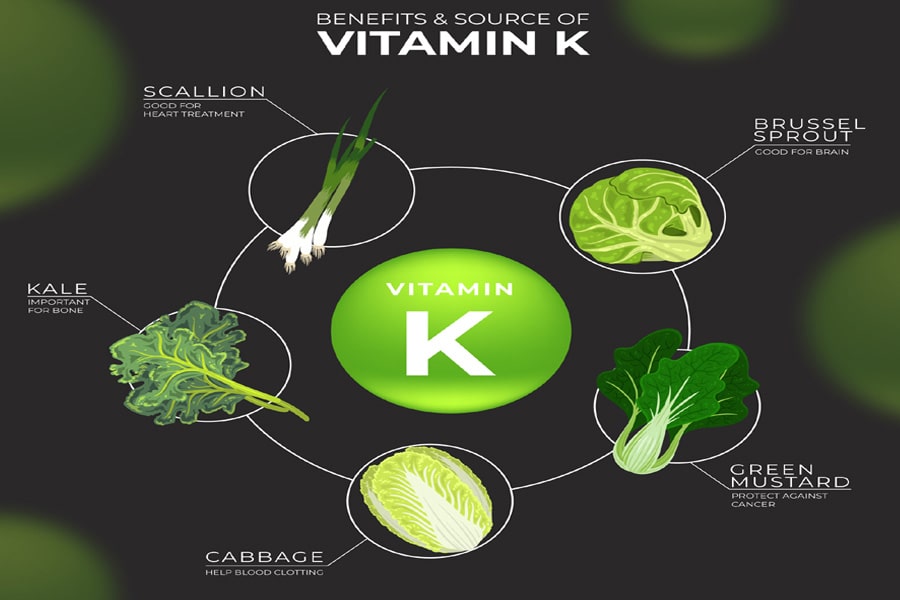
- Generic Name: Phylloquinone.
- Importance: Necessary for blood clotting and bone health.
- Deficiency syndromes: impaired blood clotting, leading to excessive bleeding and bruising.
- Sources: Leafy greens (kale, spinach), broccoli, Brussels sprouts, soybeans.
Conclusion:
These essential vitamins for our body are needed in small amounts, but they play an important role in building a healthy body. Understanding these 13 essential vitamins for our body, their functions, and their dietary sources empowers us to make a proper diet plan. By prioritizing a diet abundant in fruits, vegetables, whole grains, healthy fats, and lean proteins, we can naturally meet most of the essential vitamins for our body.
It’s important to be aware of the deficiency symptoms of these essential vitamins for our body, as they can signal the need for dietary changes, supplementation, or a consultation with your doctor. Remember, a balanced diet is the foundation of good health, and ensuring you get enough of these vital nutrients will support your body’s optimal function and long-term wellness.
FAQ:
For most people, a balanced diet provides enough vitamins. However, supplements may be useful if you have dietary restrictions, certain medical conditions, or if your doctor identifies a deficiency. Always consult your healthcare provider before starting any new supplements.
Yes, especially with fat-soluble vitamins (A, D, E, K) which can be stored in the body. Excess amounts of certain vitamins can be toxic. It’s best to get your vitamins primarily from food and discuss any concerns with your doctor.
Vegetarians and vegans may need to pay closer attention to their intake of Vitamin B12 (mostly found in animal products) and possibly iron, calcium, and vitamin D. Choosing fortified foods and potentially discussing supplementation with a healthcare professional will help ensure a balanced diet.
While vitamins play crucial roles in overall health, their role in disease prevention is complex. Some research suggests certain vitamins may offer protective benefits, but they are not a replacement for a healthy lifestyle, regular checkups, and necessary medical treatments.
